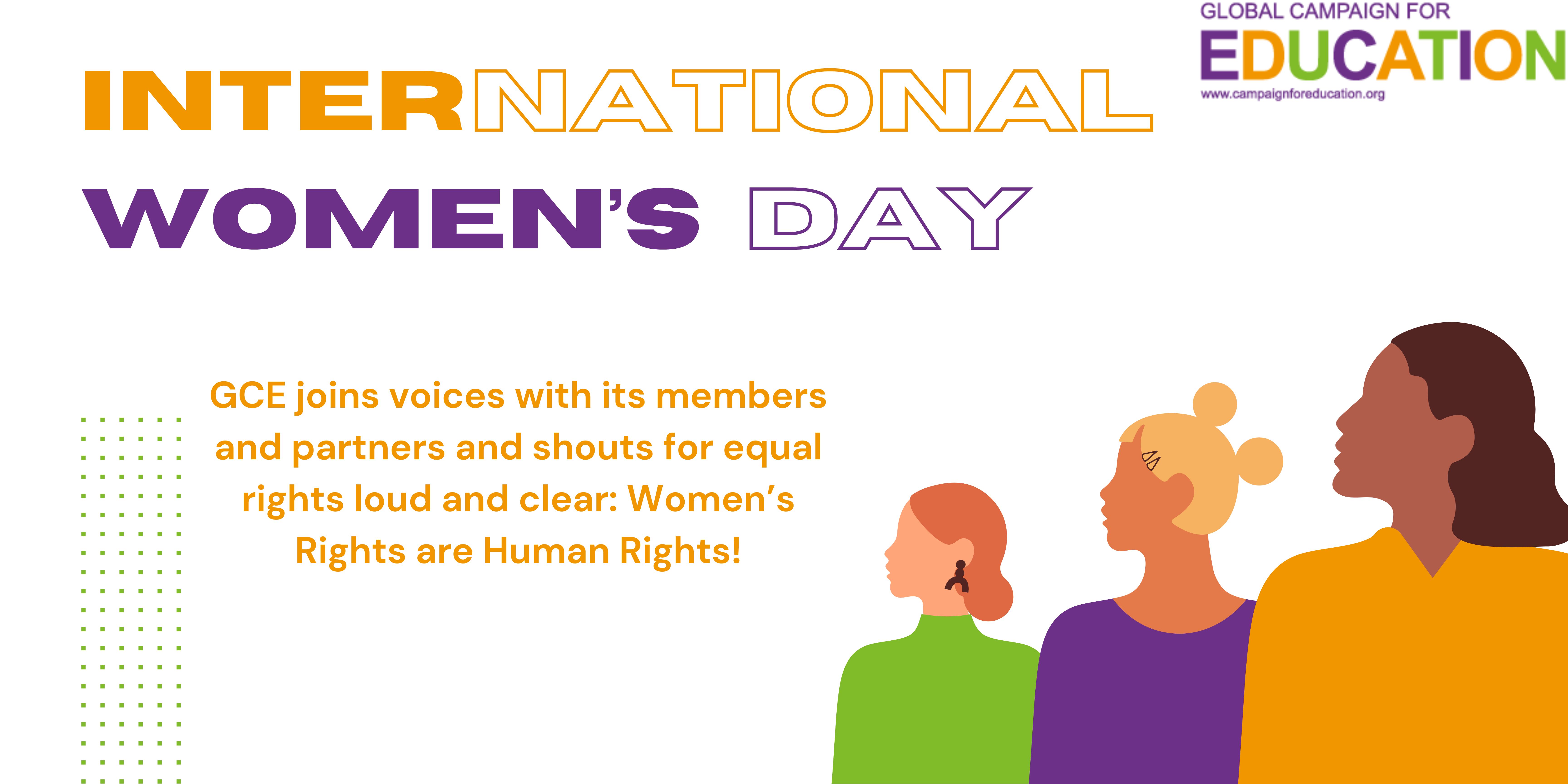GCE Statement on the occasion of International Women’s Day

DigitALL: Innovation and Technology for Gender Equality
#IWD2023
International Women’s Day is celebrated annually on the 8th of March to commemorate women's historical struggles in favour of their equality and human rights. Today, we celebrate their ideas, innovation, and activism that are changing the world for the better. On this day, we bring attention to issues that affect women's and girls’ rights, such as gender-based violence and inequity in education.
The theme for 2023 is aligned with the priority theme for the upcoming 67th session of the Commission on the Status of Women (CSW67), “Innovation and Technological Change and Education in the digital age for achieving gender equality and the empowerment of all women and girls.”
It is the core mandate of the Global Campaign for Education (GCE) to advocate for the human right to quality education, particularly for women and girls. Though there has been progress over the years in achieving girls and women’s education in many parts of the world since the founding of the GCE, they are still the ones who face more barriers and discrimination to access educational environments and the full recognition of their rights.
Gender gaps in digital skills are wider in developing countries than in developed countries. The digital divide in developing countries limits access to Information and Communication Technology (ICT) infrastructure and the development of digital skills for young women and girls. This and other related factors limit their access, preparation, and opportunities to go into science, technology, engineering, and mathematics (STEM) fields as adults. Women face stereotypes about their abilities early in life, often undermining their confidence in science, mathematics, and technical skills and discouraging them from choosing STEM courses in school.
For those who do pursue STEM, they face barriers to success, including discrimination, pressure to marry early, expectations to take full responsibility for household and family duties, and glass ceilings that keep them from high leadership positions. When children were asked to draw a mathematician or scientist, girls were twice as likely to draw men as they were to draw women, while boys almost always drew men in a lab coat [1].
On this day, GCE calls for local governments to strengthen the STEM curricula to promote equal opportunities and participation in STEM, to strengthen the capacity of teachers and career counsellors to encourage girls to pursue studies and careers in STEM, to raise awareness of gender equality in STEM to parents and broader communities, and to work with the larger community to decrease sociocultural barriers that impede girls’ progress in STEM.
GCE further calls for the international community to support democratic institutions and the re-establishment of the conditions that guarantee the full rule of law and respect for human rights, including the education of women and girls.
GCE continues to put pressure on the international community and governments to fulfil their obligation to provide free, inclusive, quality education without discrimination on the grounds of gender, sexual orientation, gender expression, identity or characteristics, or other grounds, including but not limited to race, disability, ethnic origin, age, language, location, religion or belief, migratory or refugee background, or any other minority status. Comprehensive sexuality education is an ideal mechanism to overcome various forms of violence and discrimination against women and girls.
This year, GCE joins voices with its people and shouts for equal rights loud and clear: Women’s rights are human rights!
End


